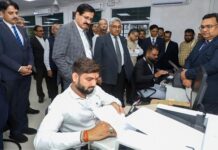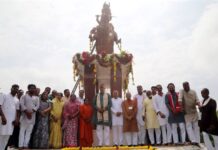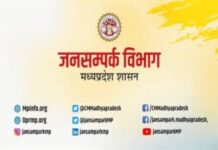In a most historic move, the Bombay High Court which is one of the oldest and so also one of the most prestigious High Courts in India in a most laudable, learned, landmark, logical and latest judgment titled Ram Issrani vs Enforcement Directorate & Ors in Criminal Writ Petition (Stamp) No. 15417 of 2023 and cited in Neutral Citation No.: 2024:BHC-AS:17238-DB that was reserved on March 6, 2024 and then finally pronounced on April 15, 2024 has minced just no words in making it indubitably clear that Enforcement Directorate (ED) cannot deprive person of right to sleep by recording statements at unearthly hours. We thus see that the Bombay High Court took strong exception to the Enforcement Directorate (ED) recording statements of witnesses and accused at unearthly hours, given that it resulted in deprivation of a person’s sleep. In the fitness of things, the Bench of Bombay High Court comprising of Hon’ble Ms Justice Revati Mohite Dere and Hon’ble Ms Justice Revati Mohite Dere directed the central agency to issue a circular or direction regarding timings for recording statements when summons are issued for interrogation.
It cannot be lost on us that the Bombay High Court in this leading case most unambiguously observed that, “Recording of statement, at unearthly hours, definitely results in deprivation of a person’s sleep, a basic human right of an individual. We disapprove this practice. Thus, we deem it appropriate to direct the ED to issue a circular/directions, as to the timings, for recording of statements, when summons under Section 50 of the Prevention of Money Laundering Act (PMLA) are issued.” We need to note that the remarks came in a petition that had been filed by a 64-year-old businessman, Ram Issrani who had accused the ED of illegally arresting him in an alleged bank fraud case. More precisely, the Bombay High Court reiterated that an investigation by ED officers stood on a different footing from an investigation under the Code of Criminal Procedure, as it was deemed to be a judicial proceeding. In view of this, the Court observed that the statement recording was required to happen during ‘earthly hours’.
At the very outset, this brief, brilliant, bold and balanced judgment authored by Hon’ble Ms Justice Revati Mohite Dere for a Division Bench of the Bombay High Court comprising of herself and Hon’ble Ms Justice Revati Mohite Dere sets the ball in motion by first and foremost putting forth about the petitioner’s seeking relief in para 1 that, “By this petition preferred under Article 226 of the Constitution of India, the petitioner seeks the following substantive relief :
“i. Pass necessary orders and directions thereby declaring the arrest to be illegal and quashing the order granting remand, dated 08.08.2023 passed by the Ld. Special PMLA Court Mumbai, Maharashtra in the matter titled “Assistant Director, Directorate of Enforcement vs Shri Ram Kotumal Issrani” in PMLA RA No. 995/2023, and all other consequential proceedings arising therefrom and thereby declaring the arrest and remand of the Petitioner as illegal and thereby releasing the Petitioner forthwith as the same is passed in violation of Constitutional mandate as enshrined in Article 22(2) of the Constitution of India and Section 19 of PMLA.””
As we see, the Division Bench then discloses in para 2 that, “Mr. Aggarwal, learned counsel for the petitioner submitted that the petitioner’s arrest and consequential remand was illegal and as such, the petitioner be released forthwith. According to Mr. Aggarwal, the petitioner not having been produced before the learned Special Court within 24 hours of his arrest as mandated in law, makes the petitioner’s arrest illegal.”
To put things in perspective, the Division Bench then envisages in para 3 that, “Mr. Aggarwal relied on the following dates :
DATE EVENTS
03.08.2023 – The 4th summons was issued to the petitioner by the respondent-ED to join investigation on 07.08.2023 at 10:30 a.m.
07.08.2023 – The petitioner joined the investigation at 10:30 a.m. According to the petitioner, his personal liberty was curtailed and his movements restricted, inasmuch as, his mobile phone was seized by the respondent-ED at 10:30 a.m; and at all times since the petitioner entered the respondent-ED Office, the petitioner was surrounded by officers and the petitioner was not permitted to talk to anyone and that even when he used the washroom, the ED Officers accompanied him, thus showing that the petitioner’s liberty was curtailed.
07.08.2023- 08.08.2023 – Respondent-ED interrogated the petitioner the whole night despite the petitioner being medically unfit and was kept awake for 20 hours and was not allowed to sleep, despite the petitioner having joined investigation on three previous occasions where his statement under Section 50 of the PMLA was recorded on every occasion. Thus, according to the learned counsel for the petitioner, it was in clear violation of the petitioner’s fundamental right ‘Right to Sleep’, which forms part of his right to life, enshrined under Article 21 of the Constitution of India.
08.08.2023 at 5:30 a.m. – The petitioner was shown formally arrested on the said date and time.
08.08.2023 5:30 a.m-5:00 p.m. – The petitioner was not produced before the nearest Magistrate/nearest Spl. PMLA Court, New Delhi and nor any transit remand was sought from the nearest PMLA Court, New Delhi and instead, the petitioner was brought to Mumbai by a flight and was taken to the office of the ED at Mumbai. This, according to the learned counsel for the petitioner, was in violation of Article 22(3) of the Constitution of India which provides for accused to be produced before the nearest Magistrate.
08.08.2023 at 5:00 p.m. – Petitioner was produced before the learned Special Judge, PMLA Court, Mumbai at 5:00 p.m. on 08.08.2023, wherein the respondent-ED sought transit remand of the petitioner on the ground that the petitioner was non-cooperative. It appears that the respondent-ED did not press for transit remand to take the petitioner to Gujarat and instead, the petitioner was remanded to the respondent-ED’s custody.
According to the learned counsel for the petitioner, the period of 24 hours from 07.08.2023 at 10:30 a.m. i.e. from the time when the petitioner was taken into custody by the respondent-ED and his liberty was curtailed, expired on 08.08.2023 at 10:30 a.m, since the petitioner was not produced before the nearest Magistrate, even excluding the travel time. This, according to the learned counsel for the petitioner, was in violation of Article 22(2) of the Constitution of India.”
Be it noted, the Division Bench notes in para 14 of this laudable judgment that, “Thus, we hold that the petitioner was produced before the Special Court well within 24 hours as stated hereinabove and as such, do not find any illegality in the arrest of the petitioner and as such, the petition being devoid of merit, is dismissed.”
Briefly stated, the Division Bench enunciates in para 16 that, “Voluntary or otherwise, we deprecate the manner in which the petitioner’s statement was recorded so late in the night which went on post midnight, till 3:30 a.m. It is pertinent to note and as contended by the learned Spl. P.P, when a person is summoned under Section 50 of the PMLA, the person is `not an accused’, and that the said person could well be a witness or a person who is associated or has knowledge about the offence being investigated.”
Quite significantly, the Division Bench propounds in para 18 that, “Thus, statements recorded under Section 50(2) of the PMLA are not statements recorded under Section 161 of the Cr.P.C; and infact, are treated as evidence. It is also pertinent to note, that the ED officers are not police officers, inasmuch as, the said proceeding before the officers is a judicial proceeding, as evident from Section 50(4) and as held in Vijay Madanlal Choudhary (Supra). Therefore, it can be gauged from the scheme of the statute that investigation under the PMLA stands on a different footing from an investigation under the Cr.P.C, inasmuch as, the statements given under Section 50(2) and (3) of the PMLA are required to be signed and the proceeding under sub-sections (2) and (3) of Section 50 are deemed to be judicial proceedings within the meaning of Sections 193 and 228 of the IPC.”
Most significantly and most forthrightly, the Division Bench mandates in para 19 what constitutes the cornerstone of this notable judgment that, “Thus, a person summoned under Section 50 of the PMLA, should have his statement necessarily recorded during earthly hours, as the investigating agency is yet to arrive at a `reason to believe’ that the said person is guilty of an offence punishable under this Act. The `right to sleep’/’right to blink’ is a basic human requirement, inasmuch as, non-providing of the same, violates a person’s human rights. It affects a person’s health, may impair his mental faculties, cognitive skills and so on. The said person, so summoned, cannot be deprived of his basic human right i.e. right to sleep, by the agency, beyond a reasonable time. Statements must necessarily be recorded during earthly hours and not in the night when the person’s cognitive skills may be impaired. It is pertinent to note that Apex Court in the case of Ramlila Maidan Incident v. Home Secretary, Union of India (2012) 5 SCC 1, has in para 327 observed as under :
“327. An individual is entitled to sleep as comfortably and as freely as he breathes. Sleep is essential for a human being to maintain the delicate balance of health necessary for its very existence and survival. Sleep is, therefore, a fundamental and basic requirement without which the existence of life itself would be in peril. To disturb sleep, therefore, would amount to torture which is now accepted as a violation of human right. It would be similar to a third degree method which at times is sought to be justified as a necessary police action to extract the truth out of an accused involved in heinous and cold-blooded crimes. It is also a device adopted during warfare where prisoners of war and those involved in espionage are subjected to treatments depriving them of normal sleep.””
It is worth noting that the Division Bench then deems it appropriate to note in para 20 of this remarkable judgment that, “In the facts, it is not as if the petitioner, aged 64 years had not reported to the Office of the ED on 3 earlier occasions, post the summons issued under Section 50 of the PMLA. This was the 4th summons which was issued to the petitioner. On all the earlier occasions, his statements were recorded and as such, the petitioner could have well been summoned on some other day or even on the next day, instead of keeping him waiting post midnight, despite his alleged consent. Consent is immaterial. Recording of statement, at unearthly hours, definitely results in deprivation of a person’s sleep, a basic human right of an individual. We disapprove this practice. Thus, we deem it appropriate to direct the ED to issue a circular/directions, as to the timings, for recording of statements, when summons under Section 50 of the PMLA are issued, having regard to what is observed by us hereinabove.”
As a corollary, the Division Bench then holds and directs in para 21 of this robust judgment that, “Accordingly, the petition stands dismissed with the aforesaid observations. To be listed on 9th September 2024 for recording compliance of the directions issued by this Court to the ED in para 20 above.”
Finally, the Division Bench then concludes by holding in para 22 of this learned judgment that, “All concerned to act on the authenticated copy of this judgment.”
In sum, we thus see that the Bombay High Court has made it abundantly clear that ED cannot deprive a person of right to sleep by recording statements at unearthly hours. There can be no gainsaying that it is thus the bounden duty of the ED to definitely comply with what the Bombay High Court has directed in this leading case so elegantly, eloquently and effectively! There can be just no denying it!
Sanjeev Sirohi, Advocate,
s/o Col (Retd) BPS Sirohi,
A 82, Defence Enclave,
Sardhana Road, Kankerkhera,
Meerut – 250001, Uttar Pradesh.
Disclaimer
The information contained in this website is for general information purposes only. The information is provided by TodayIndia.news and while we endeavour to keep the information up to date and correct, we make no representations or warranties of any kind, express or implied, about the completeness, accuracy, reliability, suitability or availability with respect to the website or the information, products, services, or related graphics contained on the website for any purpose. Any reliance you place on such information is therefore strictly at your own risk.
In no event will we be liable for any loss or damage including without limitation, indirect or consequential loss or damage, or any loss or damage whatsoever arising from loss of data or profits arising out of, or in connection with, the use of this website.
Through this website you are able to link to other websites which are not under the control of TodayIndia.news We have no control over the nature, content and availability of those sites. The inclusion of any links does not necessarily imply a recommendation or endorse the views expressed within them.
Every effort is made to keep the website up and running smoothly. However, TodayIndia.news takes no responsibility for, and will not be liable for, the website being temporarily unavailable due to technical issues beyond our control.
For any legal details or query please visit original source link given with news or click on Go to Source.
Our translation service aims to offer the most accurate translation possible and we rarely experience any issues with news post. However, as the translation is carried out by third part tool there is a possibility for error to cause the occasional inaccuracy. We therefore require you to accept this disclaimer before confirming any translation news with us.
If you are not willing to accept this disclaimer then we recommend reading news post in its original language.













